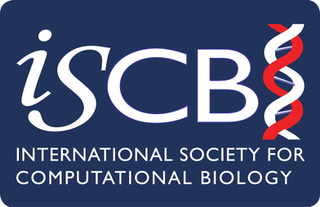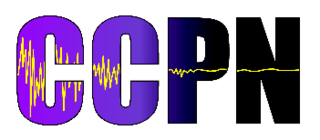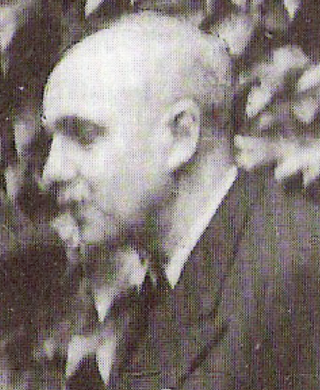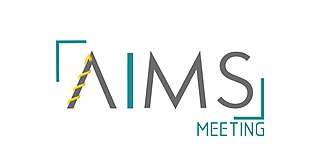This article needs additional citations for verification .(October 2018) |
EUCMOS is the abbreviation of the conference series "European Congress on Molecular Spectroscopy". [1]
This article needs additional citations for verification .(October 2018) |
EUCMOS is the abbreviation of the conference series "European Congress on Molecular Spectroscopy". [1]
The European Congress on Molecular Spectroscopy (EUCMOS) is held every two years. The first Congress in this series was held in Basel (Switzerland) in 1951. It focuses on all aspects of spectroscopic methods and techniques (including applications), as well as computational and theoretical approaches for the investigation of structure, dynamics, and properties of molecular systems.
This Congress covers various scientific topics including vibrational, electronic and rotational spectroscopies, spectroscopy of surfaces and interfaces, spectroscopy of biological molecules, computational methods in spectroscopy, applied spectroscopies (archaeology, geology, mineralogy, arts, environmental analysis, food analysis, and processing), new materials, and time-resolved spectroscopy.
The European Molecular Spectroscopy Group, which was constituted informally after the Second World War to bring together spectroscopists from across Europe, met for the first time in Konstanz in 1947. [2] Reinhard Mecke was at the time working in temporary accommodation at Wallhausen, a small village on the shores of Lake Constance, and the meeting (initiated by invitation of Professors Jean Lecomte and Alfred Kastler from Paris) was attended by French, German and Austrian spectroscopists. [3]
However, the meeting which has since become regarded as the first of the EUCMOS series was organised under the auspices of Ernst Miescher in Basel in 1951, followed every two years by conferences in Paris (1953), Oxford (1955), Freiburg (1957), Bologna (1959), Amsterdam (1961), Budapest (1963), Copenhagen (1965), Madrid (1967) and Liége (1969). The next meeting was not held until 1973 when it was organized in Tallinn. The 1975 meeting in Strasbourg was devoted to the molecular spectroscopy of dense phases. The biennial meetings were perturbed for the second time in 1991 when EUCMOS XX, which was due to be held in Zagreb, had to be cancelled because of the Civil war in Yugoslavia. The following meeting, in Vienna, was brought forward by a year and the meetings have since been held in the even years. At EUCMOS XXII held in Essen (1994), William James Orville-Thomas retired as President of the International Committee and Austin Barnes was elected to this post. During his mandate, 11 conferences of the series were held, included the one organized in Coimbra in the Year 2000 (EUCMOS XXV). In EUCMOS XXXIII (2016, Szeged) Barnes retired as President of the International Committee and Rui Fausto (vice-President since EUCMOS XXVII, in Cracow, together with Henryk Ratajczak) was elected to this position. The new President had already been chosen as the organizer of the following EUCMOS meeting in Coimbra, 2018 (EUCMOS XXXIV). Sylvia Turrel and Michael Schmitt are the current vice-Presidents of the International Committee.
EUCMOS gathered over the years (present and future) Nobel prize winners from all areas of molecular physics as plenary speakers. This starts in 1953 with Alfred Kastler in Paris (Nobel prize 1966) followed by Gerhard Herzberg 1989 in Leipzig (Nobel prize 1971), Harold Kroto 2000 in Coimbra (Nobel prize 1996) and Theodor W. Hänsch 2010 in Florence (Nobel prize 2005).
| Number | Year | Country | City | Organizer |
|---|---|---|---|---|
| 0 | 1947 | Germany | Konstanz | Mecke |
| I | 1951 | Switzerland | Basel | Miescher |
| II | 1953 | France | Paris | Lecomte/Kastler |
| III | 1955 | UK | Oxford | Thompson |
| IV | 1957 | Germany | Freiburg | Mecke |
| V | 1959 | Italy | Bologna | Mangini |
| VI | 1961 | The Netherlands | Amsterdam | Katelaar |
| VII | 1963 | Hungary | Budapest | Kovacs |
| VIII | 1965 | Denmark | Copenhagen | Bak |
| IX | 1967 | Spain | Madrid | Morcillo |
| X | 1969 | Belgium | Liége | Rosen |
| XI | 1973 | USSR | Tallinn | El'yashevich |
| XII | 1975 | France | Strasbourg | Lecomte |
| XIII | 1977 | Poland | Wrocław | Ratajczak |
| XIV | 1979 | Germany | Frankfurt | Müller/Comes |
| XV | 1981 | UK | Norwich | Orville-Thomas |
| XVI | 1983 | Bulgaria | Sofia | Jordanov |
| XVII | 1985 | Spain | Madrid | Hidalgo |
| XVIII | 1987 | The Netherlands | Amsterdam | Oskam |
| XIX | 1989 | Germany (DDR) | Dresden | Steger |
| XX* | 1991 | Croatia | Zagreb | Meic |
| XXI | 1992 | Austria | Vienna | Kellner |
| XXII | 1994 | Germany | Essen | Schrade |
| XXIII | 1996 | Hungary | Balatonfüred | Mink |
| XXIV | 1998 | Czech Republic | Prague | Volka |
| XXV | 2000 | Portugal | Coimbra | Fausto |
| XXVI | 2002 | France | Lille | Turrel |
| XXVII | 2004 | Poland | Cracow | Handke/Ratajczak |
| XXVIII | 2006 | Turkey | Istanbul | Akiüz |
| XXIX | 2008 | Croatia | Opatia | Musić/Furić |
| XXX | 2010 | Italy | Florence | Schettino |
| XXXI | 2012 | Romania | Cluj-Napoca | Aştilean/Chiş/Cozar |
| XXXII | 2014 | Germany | Düsseldorf | Schmitt |
| XXXVIII | 2016 | Hungary | Szeged | Palinko |
| XXXIV | 2018 | Portugal | Coimbra | Fausto |
| XXXV | 2020 | Finland | Jyväskylä | Lundell |
* Not held because of the civil war in Yugoslavia.

Gerhard Heinrich Friedrich Otto Julius Herzberg, was a German-Canadian pioneering physicist and physical chemist, who won the Nobel Prize for Chemistry in 1971, "for his contributions to the knowledge of electronic structure and geometry of molecules, particularly free radicals". Herzberg's main work concerned atomic and molecular spectroscopy. He is well known for using these techniques that determine the structures of diatomic and polyatomic molecules, including free radicals which are difficult to investigate in any other way, and for the chemical analysis of astronomical objects. Herzberg served as Chancellor of Carleton University in Ottawa, Ontario, Canada from 1973 to 1980.

Alfred Kastler was a French physicist, and Nobel Prize laureate.

Claude Cohen-Tannoudji is a French physicist. He shared the 1997 Nobel Prize in Physics with Steven Chu and William Daniel Phillips for research in methods of laser cooling and trapping atoms. Currently he is still an active researcher, working at the École normale supérieure (Paris).

The Max Planck Institute for Biophysical Chemistry, also known as the Karl-Friedrich Bonhoeffer Institute, was a research institute of the Max Planck Society, located in Göttingen, Germany. On January 1, 2022, the institute merged with the Max Planck Institute for Experimental Medicine in Göttingen to form the Max Planck Institute for Multidisciplinary Sciences.

The Max Planck Institute of Biophysics is located in Frankfurt, Germany. It was founded as the Kaiser Wilhelm Institute of Biophysics in 1937, and moved into a new building in 2003. It is an institute of the Max Planck Society.

Intelligent Systems for Molecular Biology (ISMB) is an annual academic conference on the subjects of bioinformatics and computational biology organised by the International Society for Computational Biology (ISCB). The principal focus of the conference is on the development and application of advanced computational methods for biological problems. The conference has been held every year since 1993 and has grown to become one of the largest and most prestigious meetings in these fields, hosting over 2,000 delegates in 2004. From the first meeting, ISMB has been held in locations worldwide; since 2007, meetings have been located in Europe and North America in alternating years. Since 2004, European meetings have been held jointly with the European Conference on Computational Biology (ECCB).

The International Society for Computational Biology (ISCB) is a scholarly society for researchers in computational biology and bioinformatics. The society was founded in 1997 to provide a stable financial home for the Intelligent Systems for Molecular Biology (ISMB) conference and has grown to become a larger society working towards advancing understanding of living systems through computation and for communicating scientific advances worldwide.

The Association Computability in Europe (ACiE) is an international organization of mathematicians, logicians, computer scientists, philosophers, theoretical physicists and others interested in new developments in computability and in their underlying significance for the real world. CiE aims to widen understanding and appreciation of the importance of the concepts and techniques of computability theory, and to support the development of a vibrant multi-disciplinary community of researchers focused on computability-related topics. The ACiE positions itself at the interface between applied and fundamental research, prioritising mathematical approaches to computational barriers.
Prabhakar Misra is an American physicist, who researches and teaches at Howard University in Washington, D.C., and is currently a Professor in the Department of Physics and Astronomy.
The International Congress of Women was created so that groups of existing women's suffrage movements could come together with other women's groups around the world. It served as a way for women organizations across the nation to establish formal means of communication and to provide more opportunities for women to ask the big questions relating to feminism at the time. The congress has been utilized by a number of feminist and pacifist events since 1878. A few groups that participated in the early conferences were The International Council of Women (ICW), The International Alliance of Women (IAW) and The Women's International League for Peace and Freedom (WILPF).

The Collaborative Computing Project for NMR (CCPN) is a project that aims to bring together computational aspects of the scientific community involved in NMR spectroscopy, especially those who work in the field of protein NMR. The general aims are to link new and existing NMR software via a common data standard and provide a forum within the community for the discussion of NMR software and the scientific methods it supports. CCPN was initially started in 1999 in the United Kingdom but collaborates with NMR and software development groups worldwide.

Johannes Orphal is a German physicist. He is Head of Division 4 "Natural and Built Environment" and Full Professor of Physics at the Karlsruhe Institute of Technology (KIT). From 2009 to 2020 he was Director of the Institute of Meteorology and Climate Research (IMK) at KIT. Until 2009, he was Professor at the University of Paris-Est in Créteil and research scientist at the CNRS.
Reinhard Mecke was a German physicist, who focused on chemical physics. He was one of the pioneers of infrared spectroscopy.

Martin Quack is a German physical chemist and spectroscopist; he is a professor at ETH Zürich.

Hartmut Oschkinat is a German structural biologist and professor for chemistry at the Free University of Berlin. His research focuses on the study of biological systems with solid-state nuclear magnetic resonance.

Børge Bak, Knight of the Order of the Dannebrog 1st Class, was a Danish polymath, inventor, violinist, chemist and professor of molecular spectroscopy at the University of Copenhagen, best known for his early contributions to the field of Molecular Spectroscopy. Bak travelled widely as a visiting Professor, including to Stanford University (1958), the University of California, Berkeley (1969), Columbia University in the City of New York, and the University of Bologna (1976). He served as a nominator to the Nobel Committee for Chemistry and played an instrumental role in the 1991 Nobel Prize in Chemistry being awarded to Richard R. Ernst for his "contributions to the development of the methodology of high resolution nuclear magnetic resonance (NMR) spectroscopy".

Jean Lecomte was a French physicist, researcher and professor of physics at CNRS.

The Annual International (bio)Medical Students Meeting, also known as AIMS Meeting, is an annually held student congress on biomedical sciences, considered to be the largest European Biomedical Conference organized entirely by medical students. It is essentially advocated by the Faculty of Medicine of the Lisbon Students’ Local Committee and highlights the importance of medical education for all students of health sciences through a diverse approach. In 2021, despite numerous travel restrictions across the world, more than 1300 participants from 19 countries were able to attend its Online Edition, proving to be one of the hallmarks of medical education for (bio)medical students across the globe, particularly in a year where the vast majority of students were forced to partake in exclusive online classes.
Nathalie Picqué is a French physicist working at the Max Planck Institute of Quantum Optics in the field Frequency Combs, where she studies ultra-high resolution spectroscopy using ultrashort pulses of light combined with Fourier-transform spectroscopy to reveal the fine chemistry of samples, in particular in the mid-infrared, demonstrating resolving power in excess of 1,000,000,000,000.
Mitsuo Tasumi was a Japanese physical chemist known for his vibrational spectroscopic works on synthetic and biological macromolecules. He was Professor Emeritus of the University of Tokyo, and a former president of Saitama University, having trained a number of physical chemists active in academia and industry. Moto-o Tasumi, a zoologist at Kyoto University, was his brother.
attribution contains material licensed under CC-BY-3.0 from http://www.qui.uc.pt/eucmos2018/EUCMOS_history.html © 2016 EUCMOS 2018